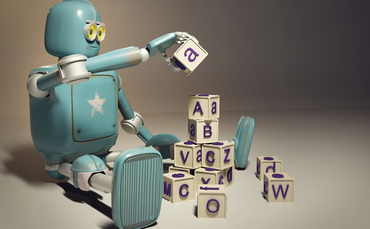Image: We’re in the early days of generative AI, but the advancements are coming thick and fast
Recently I visited the Tiptree Jam Museum, home of more spreadable sweetness than even the most wide-eyed child could handle. Middle age has arrived.
But while I was (unexpectedly) enjoying the history of preserves, something else was washing around the back of my mind: how many people had been put out of business by technical advancements over the centuries the factory had been in operation.
At one point an exhibit of tools for peeling and pitting fruit described how each one could do the work of tens of labourers. Scale that up to every factory around the country and it’s easy to see why people were scared for their future.
We’re in a similar situation now. The robots are coming.
We’ve known that for years; production lines worldwide are highly automated. It’s the software advancements, in ChatGPT, Bard and other generative AI models, that are capturing headlines this year, because they threaten creative jobs - like journalism - that have long been thought immune to replacement.
Microsoft has clearly got a headstart with its investment in OpenAI and ChatGPT, incorporating the technology into its Bing search engine.
That massively threatens Google’s search dominance - perhaps high time someone did so. The world’s leading search engine has for years been growing more advertiser-driven (how many sponsored links do you have to scroll past now to get to your actual search results?) and incentivised to keep people inside Google’s walled garden of services.
The market is ripe for disruption, and Microsoft hopes the new Bing will do it.
Google didn’t sit still and take the hit, unveiling its own offering, Bard , this week. It was clearly a bit of a scramble, as a badly judged promotional video, showing Bard generating the wrong answer to a question, wiped $100 billion from Google’s stock value .
Early testing by The Economist shows the two systems are as of now much of a muchness (the dearth of AI talent and tech industry’s incestuous nature means most of the developers will have worked on both systems at one point or another), but Microsoft/OpenAI perhaps has a small advantage through its early release - and, thus, wealth of training data.
Microsoft will be pretty happy to have a leg up on its rival for once, but how long will it last? In the battle of the tech giants Resources Always Win, and Google has a LOT of resources to throw at the problem. We should just be glad Apple hasn’t thrown Siri into the ring yet.
